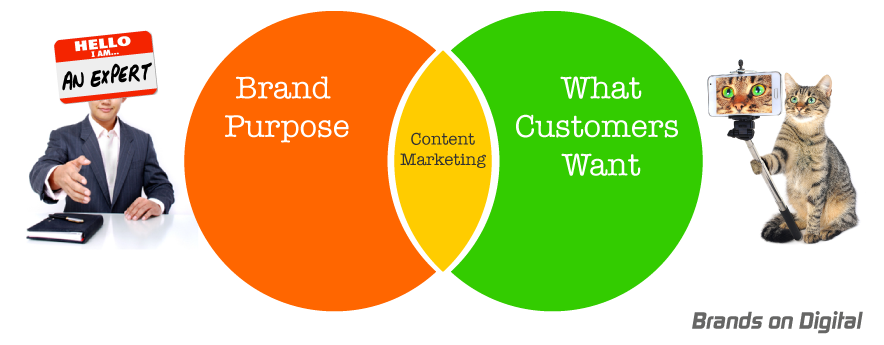Content Marketing
Advertising isn’t the only way to promote your brand. You also have the opportunity to create content and distribute it through online publications, blogs, social profiles, email and video channels. To help brands engage with audiences we ideate and create content in a variety of formats and distribute through appropriate channels.

Working with our channel partners we are able to promote brands within a more natural context of their customer journey. This process connects audiences in a more targeted and personalised way achieving a stronger uplift to brand engagement, recognition and recall. Unlike paid advertising, which stops when your budget runs out, content marketing creates ‘always on’ content that does not aim to interrupt or disrupt the user to introduce your brand message. Instead it aims to fit in brand content that is highly relevant to the user in that moment. Based on understanding what customers potentially want or are interested in enables brands to anticipate, plan and introduce relevant content that addresses the customers wants.
This quote, from David Beebe, Content Marketing Advisor and Former VP of Global Creative and Content Marketing at Marriott International, sums up content marketing well: “Content marketing is like a first date. If all you do is talk about yourself, there won’t be a second date.”
Content marketing has evolved out of editorial based formats and is now a holistic approach that relies on a broad range of digital marketing tactics such as email, social media, SEO, and paid distribution. Format options and ideas to promote a brand through content would typically depend on objective, budget, subject and the type of audience you want to reach. For more ideas about the types of best format for your brand content have a look at our infographic ‘How to choose the best content marketing formats’ for content ideas or get in touch as we are open to discussing ideas for your brand content.
Why does content marketing matter?
There are two major ways content marketing drives ROI:
It drives marketing-influenced revenue. Through content marketing, you’ll increase leads, conversions, and upsell/cross-sell revenue.
It increases brand equity. Effective content marketing programs increase a brand’s awareness, loyalty, and value.
Why is content marketing effective?
First off, it allows you to have an “always-on” relationship with your customers. This means that you can engage with them every day, even when they’re not in the market for a purchase. With advertising, you typically see major peaks and valleys. Your traffic, engagement, and sales spike when you’re running a campaign. Those numbers fall when the campaign ends.
Content marketing, however, allows you to maintain ongoing engagement with your audience. Since you are serving them inspiring, informative content every day – as opposed to hard sells – they’ll more readily engage with your brand in between purchases or campaigns.
The value of always on content means that your marketing efforts will have less troughs between campaign periods and your audience base increases over time as shown below. Advertising based marketing suffers more attrition compared to always on content that builds up your audience and engagement over time.

What is a content marketing strategy?
Your content marketing strategy is truly the foundation of your program in that it details what you are doing and why. It defines your goals, success metrics, and processes. We recommend that you document your strategy. In doing so, you’ll align key stakeholders on what you’re looking to achieve through content marketing.
Your strategy should include:
- Goals
- Success metrics and KPIs
- Target audience, defined by demographics and psychographics
- Content strategy: content pillars, publishing cadence, team roles and responsibilities
- Distribution strategy
- Reporting and measurement framework
sample byod policy [url=https://otvetnow.ru]https://otvetnow.ru[/url] top cloud providers
crash plan review [url=https://otvetnow.ru]https://otvetnow.ru[/url] technical colleges in maryland
https://askoff.ru
https://askoff.ru
https://qtjpqhtfcs.wordpress.com
https://iagperjusu.wordpress.com
https://dwspqdxcgw.wordpress.com
https://dwspqdxcgw.wordpress.com
https://xrsaugpsya.wordpress.com
https://gxvkxeawwa.wordpress.com
https://gxvkxeawwa.wordpress.com
https://azacgxicis.wordpress.com
https://zfcejfyxiv.wordpress.com
https://zfcejfyxiv.wordpress.com
https://cxadxqpked.wordpress.com
https://cxadxqpked.wordpress.com
https://akiwdiycje.wordpress.com
https://iqakruyprf.wordpress.com
https://iqakruyprf.wordpress.com
https://dgaiyziytk.wordpress.com
https://dgaiyziytk.wordpress.com
https://hrjcdfdcvj.wordpress.com
https://wryxvrrhxe.wordpress.com
https://wryxvrrhxe.wordpress.com
https://thfdcufqah.wordpress.com